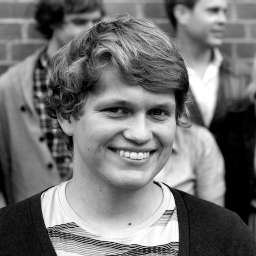The focal point of François de Carpentries’ production of The Barber of Seville, back for its fourth revival, is Rosina’s diary. In Carpentries’ production, Rosina is presented very much like an average teenage girl, rebellious and smarter than everyone else; at least that’s what she wants people to think. Scenes are played out in front of the diary pages, be they decorated with drawings, poems or the first few bars of the lesson scene aria. This is Rosina’s story, as told by her. Indeed, I wondered at times if the whole thing was just an exaggerated, idealised version of how events unfurled, or a work of fiction, a teenage girl taking refuge in an adolescent fantasy.
Following in this highly subjective vein, individual characters are played out almost to the point of caricature. Rosina herself is an exaggerated version of a teenage girl, irritatingly so. Count Almaviva is ever the handsome romantic hero, too perfect and heroic to not be at least tinged by artistic license. Dr Bartolo is very much played a ruthlessly evil villain without any redeeming features to speak of, getting his comeuppance in the form of broad slapstick every time he tries anything. Carpentries certainly had Barber’s commedia dell’arte influences in mind when creating this production, and these characterisations show at least one way of creating commedia characters on a 21st century stage.
There is little else but humour and fun in Carpentries’ production; whatever darker moments there might be vanish before they’re even noticed, or are downplayed to a great extent. The programme notes attempted to link the plot of Barber to arranged and forced marriages in the third world, a comparison that seemed altogether out of place. Certainly, comparisons might be made, but this is certainly not the production in which to attempt that.
The singing was somewhat uneven, but the strongest performances came from Taylor Stayton’s Count Almaviva and Lucas Meachem’s Figaro. Both seasoned Rossinians, they brought flair and virtuosity unmatched by the other singers. Meachem’s effortlessly charismatic Figaro impressed with a heavily ornamented “Largo al factotum” and solid voice. His ability to improvise came in handy when, during his opening aria, he dropped his razor and almost sent it flying into the pit. Apart from a mumbled curse under his breath, he took the whole incident in his stride. Stayton’s dashing Almaviva had a powerful voice and also had a tendency to ornament whenever possible, especially in his opening “Ecco ridente in cielo”. He even pulled out a trill from his arsenal, an ornament all too rare in male singers today. Although he sounded splendid vocally, he was outshone by Meachem’s Figaro. Still, with his remarkable singing, it was a shame that his last aria, “Cessa di più resistere” was cut.
As Rosina, Eir Inderhaug was something of a let-down. While her coloratura was remarkably clean, her Italian had more than a hint of Norwegian to it, and her thin voice was often swallowed by ensembles and the orchestra. Her onstage portrayal of Rosina was charming, although her girly mannerisms bordered on the irritating as the evening went on. A general lack of high notes also made for a decidedly unspectacular performance. Ketil Hugaas seemed to relish his blustering Bartolo, his comic talent and characteristic voice instantly creating a memorable character. His formidable patter skills finally met their match in Meachem’s Figaro and the two of them were a delight to watch together.
The orchestra suffered from a few awkward shifts at the beginning, but provided solid accompaniment for the singers, although I wished for an even lighter sound and more dramatic playing. While the overture fizzed along nicely, the orchestra sounded very treble-heavy; bass entries were more whimpers than actual notes.
François de Carpentries’ production of Rossini’s Barber of Seville is a light, airy treat. It never delves deeply into the psyches of its characters, and is all the better for it. Perhaps not the most mentally satisfying evening spent at the opera house, but certainly one of the more entertaining.


